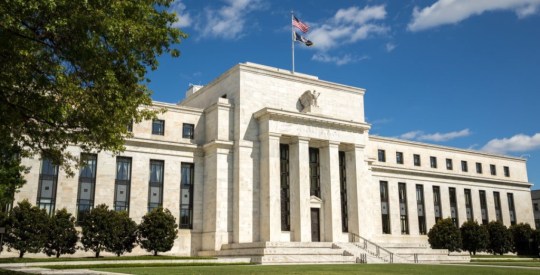Yet again, the Federal Open Market Committee kept the target federal funds rate at next to nothing and said it expects a moderate pace of economic growth over the next few quarters. The central bank said overall economic growth strengthened somewhat over the three months ended Sept. 30, although investment in nonresidential real estate remains weak and the housing sector remains depressed. The FOMC said there are significant downside risks to its economic outlook, including strains in global financial markets. And members expect inflation to settle over the coming quarters as energy and commodity price increases dissipate to a level “at least at or below” a rate consistent with the committee’s dual mandate of maximum employment and price stability. “Inflation appears to have moderated since earlier in the year as prices of energy and some commodities have declined from their peaks,” according to the FOMC. “Longer-term inflation expectations have remained stable.” The FOMC said recent economic indicators show persistence weakness in the labor market and unemployment remains higher than members would prefer. Although the committee expects unemployment to decline gradually. On Friday, the Labor Department reports October nonfarm payroll data. Earlier Wednesday, Automatic Data Processing said nonfarm private payrolls increased by 110,000 in October. TrimTabs Investment Research estimates the economy added 160,000 jobs in October, more than double the 64,000 in September. The FOMC will continue with the Federal Reserve Operation Twist program, under which it will extend maturities of certain securities, while reinvesting proceeds from mortgage-backed securities back into agency MBS. The federal funds rate has been 0% to 0.25% since December 2008. The FOMC reiterated its belief that “economic conditions, including low rates of resource utilization, subdued inflation trends, and stable inflation expectations, are likely to warrant exceptionally low levels for the federal funds rate through mid-2013.” Charles Evans, president of the Federal Reserve Bank of Chicago, cast the lone dissenting vote on the monetary policy decision because he feels more “policy accommodation” is necessary. Write to Jason Philyaw. Follow him on Twitter: @jrphilyaw.
FOMC keeps fed funds rate near zero and continues Operation Twist
Most Popular Articles
Latest Articles
Powell makes it clear: No rate cuts anytime soon
Powell made statements that indicate there will be no rate cuts anytime soon because the economy and the labor market are too strong.



